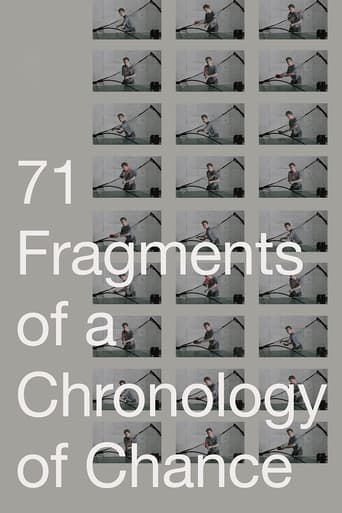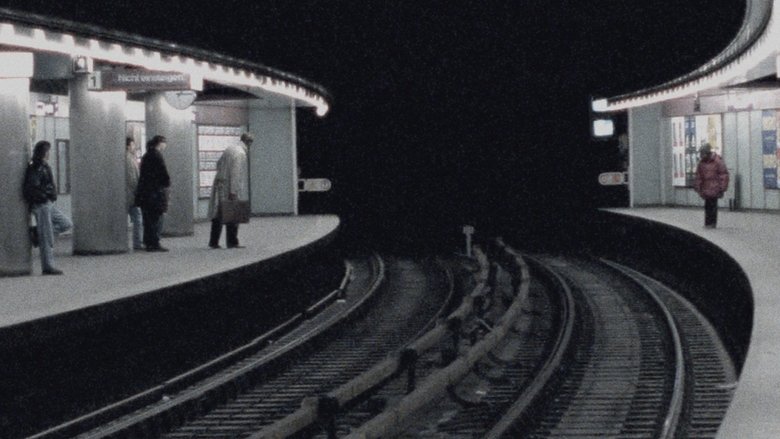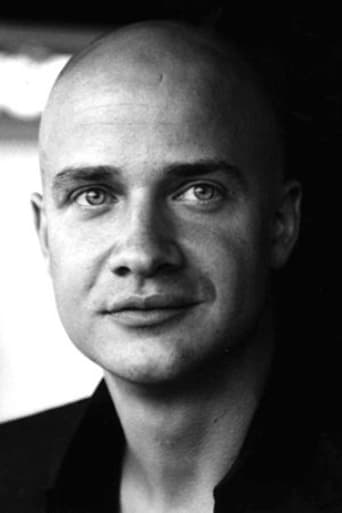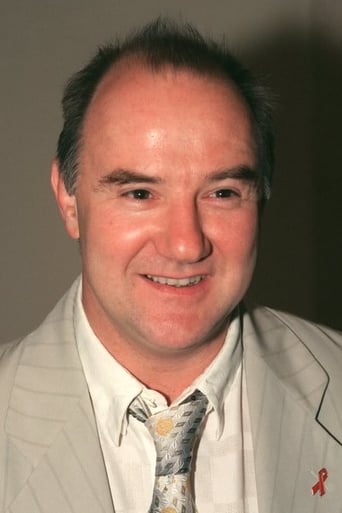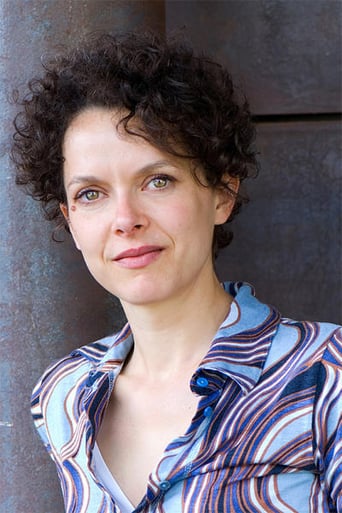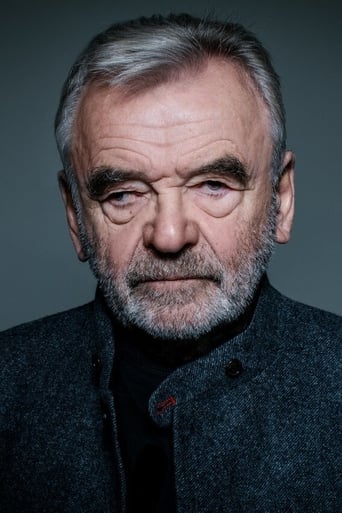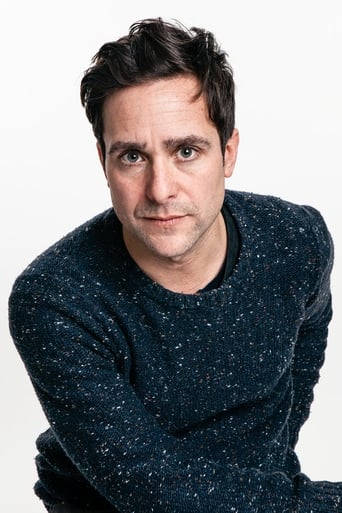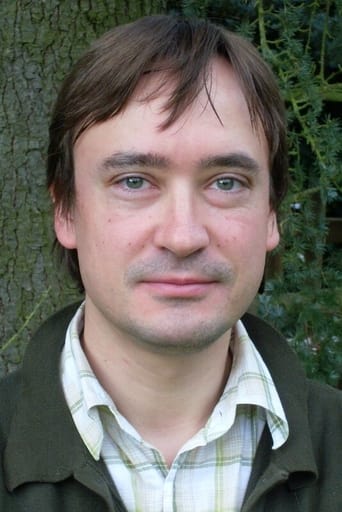71 scenes revolving around multiple Viennese residents who are by chance involved with a senseless gun slaughter on Christmas Eve.


Reviews
It is a tough choice between "Das Schloß" and "71 Fragmente einer Chronologie des Zufalls" although I have not seen most of his non-German works. This movie here is over 20 years old and the last and weakest chapter from a trilogy of films that Haneke made about violence, young delinquents and young victims (the first). His film here also has lots of social commentary, mostly about the War in Kosovo, which was a big subject at that time. The acting is strong as usual, especially from the old guy, in Haneke's films, but somehow his bleak and atmospheric approach (the one he always has) did not really do too much for me here. I wasn't particularly interested in the characters and I did not really care enough for them to be really sad at the end I guess. But it is also Haneke's usual strategy to go out with an unhappy end and that is not a problem at all. it actually gives several of his works a more realistic and authentic touch.This movie here is the only one from the trilogy that was not submitted by Austria to the Oscars, so it is fitting I guess that there were no further installments and that Haneke pursued a career about French-language films too. The first 75 minutes of "71 Fragments of a Chronology of Chance" just weren't good enough to sit through and watch the thrilling last 15 minutes. Also the way Haneke divided the film into fragments with brief black-screens as intermissions did not add too much for me. I personally hoped (and thought from the IMDb rating) that this would be a better film. I do not recommend watching it. Thumbs down. Quite a shame as I quite like the filmmaker's approach and totally enjoyed several of his more recent works.
I was drawn to the film by the "experimental" description, but it ends up being sort of a raw film verite crossed with a hand-held documentary in a fiction film. Perhaps its thesis is that the unnatural workings of civilization lead to crime being natural.But then there's Michael Jackson, inserted twice through entertainment news clips to reinforce the notion that our environment produces us and not vice versa? Add in several long uncut scenes (the film prides itself on unique if not entirely absent editing, hence the Chance nature), and this is a tough watch for me, at least these days. One of the long cuts, the father/grandfather conversation was surely supposed to help us sympathize with alienation in the old-is-obsolete culture. The ping-pong practice? Well, I guess that is repetition of tasks and specialization reduced to meaningless. These thoughts are strictly afterthoughts, during the film both scenes were less readily endured.Honestly, I think I would review films differently without kids and thus having more time. And this one might benefit from a hearty discussion with friends, or seeing it in a festival format with the director (who was the reason I stumbled across this film). But I'd skip it if given a second chance.
Before Austrian film director Michael Haneke got well-recognized and appreciated in the international film circuit with such films as "Code Unknown", "Time of the Wolf" and "The Piano Teacher" (all of which were made in France and shown in Cannes), he already made his mark with a number of films made in his native Austria, one of which is this film called "71 Fragments of a Chronology of Chance"(1994). This work is the third installment in the director's "glaciation trilogy" (the other two being "The Seventh Continent" and "Benny's Video"), thus called because of the central theme of the fine line between barbarism and civility in modern urban life being completely, hopelessly blurred. The "barrier" has been broken, so to speak.As the title suggests, the film consists of 71 "fragments" or vignettes, seemingly random, unrelated and mundane, of various characters going through the motions and vagaries of daily existence in urban Austria. But one can sense that this only seems to be so, as the film's prologue suggests that this is the event that will loom over the succeeding "fragments". And that is, the 1993 Christmas Eve reckless shooting done by a 19-year-old student named only as Maximillian B. inside a bank and on the streets, before eventually shooting himselfone that is purportedly based on a real-life incident.No explanations or back-stories are provided to the characters and their situations being shown "episodically" on the screen (a Romanian boy refugee, a bank delivery man, an old pensioner, a childless couple and, of course, the student himself). More often than not, a specific fragment is abruptly interrupted or ended by a black fade-out (an alienating technique Haneke once again utilized in the equally visceral and demanding "Code Unknown"). Some fragments happen for not more than a minute, while some last for as long as five or even eight minutes (notably the scene where the student practices ping-pong tennis facing an automated opponent and the scene where the old pensioner argues with his daughter over the phone, both of which vividly displaying a whole gamut of simmering emotions without ever resorting to histrionics). Even reinforcing the clinical, cold approachfor which Haneke is really knownis the utter lack of an accompanying soundtrack and the wordlessness of some scenes.The sense of dread is punctuated by the ever-present television (as is the case in the two other films in the trilogy), from where a specific world news is being broadcast (like the ethnic war in Somalia and the child abuse charges against pop star Michael Jackson). This is as if to suggest that the looming event foreboded at the film's start is itself to become a subject of a TV news coverage which, albeit small in scale when compared to the news indicated above, is nevertheless not without a lasting cost to the human lives involved, physically, emotionally and psychologically. Having said this, how has the line separating civility and barbarism come to be completely violated in this thought-provoking film?The trigger shooting perpetrated by the young student, which serves to be the film's denouement, appears to have been done for no apparent reason at all. It's senseless killing in its purest meaning (which arguably is the underlying essence of the middle-class family's suicide in "The Seventh Continent" and the teenage boy's videotaped murder of the girl in "Benny's Video"). And this is what makes the act all the more chilling. It's as if to suggest that such a self-destructive act is inherent in everyone of us, if not what makes up our essence, waiting only to be brought to the surface by a seemingly random and inconsequential spate of events (in "71 Fragments'" case, it's to be rooted in the student's lack of enough cash to pay for his car gas).And when the "event" does finally happen, rather than to serve as an important food-for-thought, it's sadly reduced to no more than a piece of media sensation, regarded as the hot "news of the day", focusing more on "what" happened than on "why" did it happen. The alarming incident thus becomes another piece of media entertainment, to be savored by mass consumers who always crave for what is sensational and controversial, without ever thinking of its deep-rooted incitations and implications. (This is a thought which Haneke is to delve full-blown in "Funny Games", both the Austrian and American versions, though I really prefer the first one.)If in Polish auteur Krzysztof Kieslowski's world, chance incidents and fateful encounters are all part of a grand design to convey deep layers of human emotional truths (like in the truly majestic "Three Colors" trilogy), in Haneke's (or at least in the world of "71 Fragments"), such randomness is to be put in order by an inherent barbarism that's only barely creeping out of the human psyche.
I saw this film last night and I found it very inspirational. I adore Haneke and the subject matter he chooses. For me this was completely gripping from the beginning. I loved the clarity of the scenes and the honest depiction of the various characters was chilling in parts. There is so much packed in this film I came away full of ideas. Two scenes stick in my head. The first is a scene at a kitchen table where a man tells a woman he loves her. I found it very realistic and its portrayal of this married couple was for me brutal but unflinching in its directness about the lives that we lead and the cages we build for ourselves. The second scene is an amazing shot of a character playing table tennis against an automatic opponent. It's a great shot. It's a shot that says so much. As it continues we as a viewer concentrate more on the character's face and what is written on it. Pain, anguish, fear and despair. A man so locked onto a path that he realises (perhaps in this scene) he is no longer able to return to normality. I waited for him to become exhausted but he never does and Haneke cuts the scene with him still playing, hoping perhaps the machine will break but not able to control what now controls him. As far as I know he may have gone on for hours more. A superb insight into a character's psyche encapsulated in one shot. A shocking ending rounds off a well constructed film that tries to explain why some of these events happen and does so in a thought-provoking way. There is never a dull moment in this film and I would recommend it to anyone as essential viewing. The film speaks for itself.
